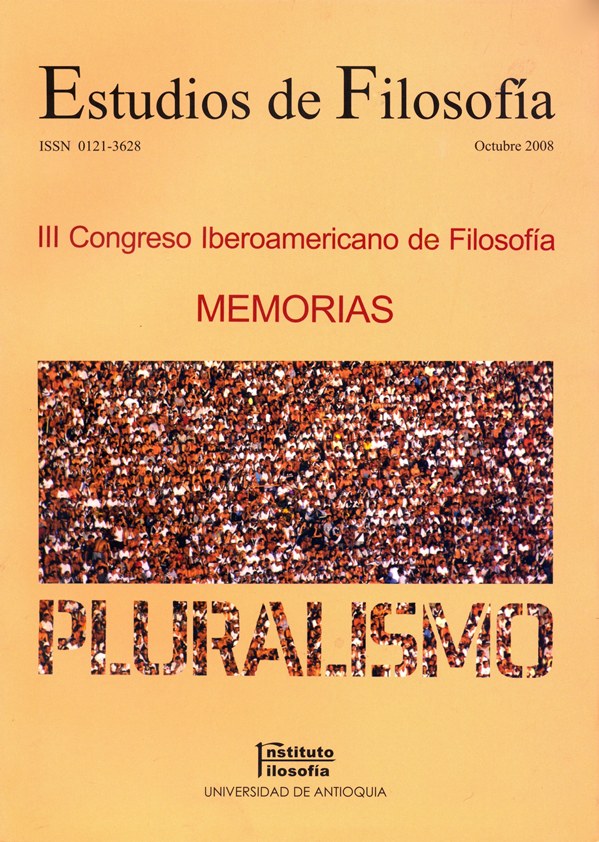Pluralism from the phenomenological "reason"
DOI:
https://doi.org/10.17533/udea.ef.12965Keywords:
phenomenology, Husserl, ideas, urdoxaAbstract
In a recent and extremely interesting Congress organized by the Nordic Society of Phenomenology and the Lithuanian Society of Phenomenology, I exposed, in one of the six plenary sessions, the fundamentals and basics of the Husserlian phenomenology of reason when founding the human sciences. The two fundamental elements of this phenomenology of reason are, on the one hand, the Husserlian description that comes from the Ideas of 1913, that in the gift that occurs in perception there is a foundation of reason, because perception gives us He gives things in person, therefore, in what we could rightly call, in themselves, in what Ortega will interpret correctly, as in his enforceability, which does not prevent Husserl from being a deep reader of William James In that perception of the Urdoxa, the original belief, because every perception and every judgment of reality that is based on a perception implies a belief that we are right, that what is perceived and affirmed will continue to behave in that way. [Fragment]
Downloads
Downloads
Published
How to Cite
Issue
Section
Categories
License
Copyright (c) 2008 Javier San Martín

This work is licensed under a Creative Commons Attribution-NonCommercial-ShareAlike 4.0 International License.
Authors who publish with this journal agree to the following terms:
1. The Author retains copyright in the Work, where the term "Work" shall include all digital objects that may result in subsequent electronic publication or distribution.
2. Upon acceptance of the Work, the author shall grant to the Publisher the right of first publication of the Work.
3. The Author shall grant to the Publisher a nonexclusive perpetual right and license to publish, archive, and make accessible the Work in whole or in part in all forms of media now or hereafter known under a Creative Commons Attribution-NoCommercia-ShareAlike (CC BY-NC-SA 4.0), or its equivalent, which, for the avoidance of doubt, allows others to copy, distribute, and transmit the Work under the following conditions: (a) Attribution: Other users must attribute the Work in the manner specified by the author as indicated on the journal Web site;(b) Noncommercial: Other users (including Publisher) may not use this Work for commercial purposes;
4. The Author is able to enter into separate, additional contractual arrangements for the nonexclusive distribution of the journal's published version of the Work (e.g., post it to an institutional repository or publish it in a book), as long as there is provided in the document an acknowledgement of its initial publication in this journal;
5. Authors are permitted, and Estudios de Filosofía promotes, to post online the preprint manuscript of the Work in institutional repositories or on their Websites prior to and during the submission process, as it can lead to productive exchanges, as well as earlier and greater citation of published work (see The Effect of Open Access). Any such posting made before acceptance and publication of the Work is expected be updated upon publication to include a reference to the Estudios de Filosofía's assigned URL to the Article and its final published version in Estudios de Filosofía.















